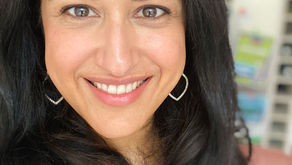Tribal Wisdom
- MR
- Jun 26, 2020
- 4 min read
A new season has emerged with a further easing of lockdown restrictions. Throughout the pandemic, many questions have been asked about our way of life and whether what we have been doing, how we have working and living, is sustainable. There have also been those who are looking to new technologies, still to be discovered, to not only vaccinate us against further infection but also to live in a more ethical manner. There are many who have been asking those questions pre-COVID, but it has taken a universal shutdown of life as we knew it for us to now find those answers, some of which are in #Repost this week. The interesting thing is, the discoveries (aside from vaccinations) aren't discoveries at all really. The answers have been around for millennia. Indigenous peoples have had an innate and complex understanding of life and our connection to this planet we call home. Julia Watson, a professor of design at Harvard and Columbia universities, argues that we have come to place a higher value on "high-tech" which is a term that evolved from the industrial revolution when we looked to machines to make life easier and, at that time, more productive. But she says, in Dezeen, we need to "reframe our view of what technology is, what it means to build it in our environment, and how we can do it differently, to synthesise the millennia of knowledge that still exists." She calls it LO-TEK (traditional ecological knowledge) where the expertise is complex and "incredibly innovative in trying to find solutions of the urban networks that feed our cities..." She bases her discussions and findings on the simple question: "what's the new way cities will grow?" And she finds her answers in those who have always had them. Watson's work would be music to Douglas Cardinal's ears. The esteemed Canadian architect who comes from the Blackfoot tribe of Alberta, has built his portfolio of designs firmly rooted in his upbringing. Telling students of architecture at McGill University when describing the approach he took for a project, "We made certain that where we were developing, we weren’t going to destroy nature, because how can you have a future when you destroy all your life givers? Because the life givers, for us, are all the animals and birds, the fish, the plants…without them, how can we live? They gave up their lives so that we can live. So we have to respect them […] unless they thrive, we cannot thrive...This is land use planning where you plan for land and nature, working together in harmony and balance, respect, and care. This is the way you plan." He would go on to say, “You are shaped by your environment, so what kind of environment do you want to shape the future? And so, it’s a real responsibility to be an architect because you’re shaping the way that people think and feel.” And he should know. Cardinal has over 20 honorary doctorates and is an Officer of the Order of Canada. It's that sense of community, that sense that we are all connected that will enable us to progress as a species. We live in a dichotomous time where on the one hand, we have been taught (and we teach our kids) to be the best, to work hard so that we can compete and get to the top of our chosen field. But many of us are also taught to use our earned privileges to lift others up too. For Jean Lin, a design entrepreneur, it is the basis of her business. Her co-op, Colony, works with designers who choose to showcase their work in her space to help them get the exposure they need. She says in Business of Home, "I was determined to create a model that was so friendly to the independent designer that it felt more like a community, like a part of their business.” It is an idea where the designers are helping each other through challenges instead of competing against each other. Plus, it is a space where they learn from each other and potentially collaborate. Recognising that everyone brings something different to the table. Finally, Bob Dylan whose 39th studio album, Rough and Rowdy Ways, is released today. Dylan doesn't do many interviews, leaving his lyrics to speak for him. Yet when he does, it's an experience of being distilled with poetic wisdom and common sense, which you will find in this interview he did with The New York Times just prior to the release of his latest offering. That said, I want to leave you with lyrics from the song Forever Young, which he wrote in 1974 (the year I was born) from the album Planet Waves. It's one of my favourites and is a gentle reminder as we navigate our way through these testing times:
"May your hands always be busy, May your feet always be swift, May you have a strong foundation, When the winds of changes shift."
Monita xo









Comments